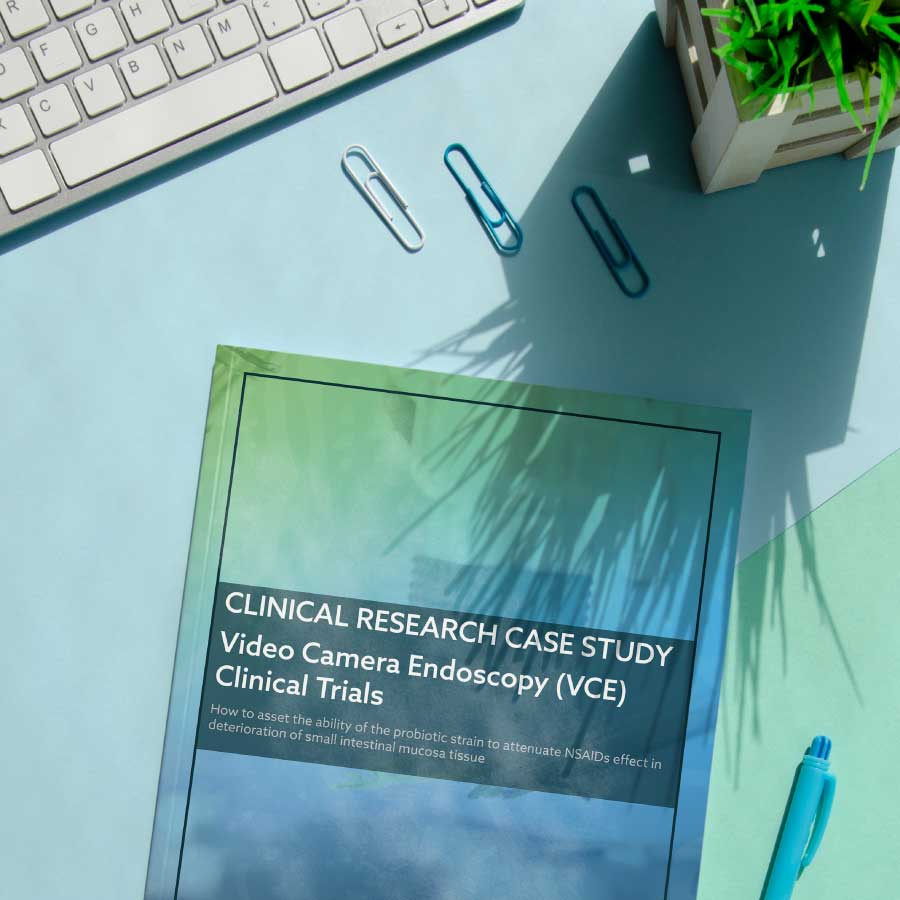Case Study
Video Camera Endoscopy (VCE) Clinical Trial
How to asset the ability of the probiotic strain to attenuate NSAIDs effect in deterioration of small intestinal mucosa tissue

Case Study Overview
Non-Steroidal Anti-Inflammatory Drugs (NSAIDs) are commonly used worldwide, both as prescription-only medicines and as “over-the-counter” preparations. However, low dose use of NSAIDS, is associated with gastrointestinal (GI) injury. Strategies to prevent GI complications associated with NSAID use included are generally associated with undesired side effects, whereas live bacteria formulated as probiotics may offer a safe alternative to prevent or at least decrease negative side effects of NSAIDS such as Aspirin. The present clinical trial is aiming to bring a product containing a probiotic strain able to attenuate and/or reverse Aspirin-induced small intestinal damage and GI symptoms in Aspirin users.
Challenges and Objectives
The Sponsor needed a highly experienced research partner able to assess the deterioration of small intestinal mucosa tissue however they needed a method not too invasive in order to overcome the Ethical burdens. The main objectives were:
• To investigate the ability of the probiotic strain to attenuate and/or reverse low-dose, long-term Aspirin-induced deterioration of small intestinal mucosa tissue as assessed by capsule endoscopy in healthy volunteers
• To investigate the ability of the probiotic strain to attenuate and reverse low-dose, long term Aspirin-induced GI symptoms as assessed AUC ulcer number as well as assessed by AUC of pain syndrome score for GSRS.
• To investigate co-administration of the probiotic strain to low-dose, long term Aspirin on changes in multiple biomarkers of general intestinal barrier function in blood and faecal samples.
Case Study Highlights
Study product
Probiotic strain
Study population
75
participants
Primary endpoint
Small intestinal damage and GI symptoms
Study duration
10
weeks

